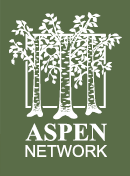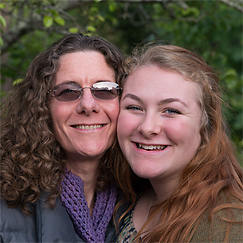Creating Safe Spaces
As parents of an adult son on the autism spectrum, my husband and co-director Michael and I have always been active participants in our son’s emotional, social, and academic development. From the beginning we have met challenges head on, and over time our understanding and perspectives have evolved into a positive philosophy that guides Aspen Network programs today. We have a deep and personal awareness of the distinct differences in individuals, in their sensitivities and abilities. It’s all about helping young people with social challenges and anxieties to learn, grow and build a new life. Our program understands that each individual is a whole, perfect human being in an imperfect, judgmental world. Unfortunately, that world that does not always understand that accommodations and structure are necessary if individuals are to express their authentic selves. Treating each young person as unique and valuable has been key to the success of Aspen Network.
Our vision for Aspen Network—mine, Michael’s, our staff’s and consultants’—is to create safe spaces in the world where our young people can land softly, can be accepted for who they are right now, today, and can realize their potential to move forward in our world. It is the very nature of these safe spaces that allows our young people to become their authentic selves. One Aspen Network participant aptly describes their experience with us as “Be Yourself 101,” a primary goal of our community. After our residents experience this new sense of safety and acceptance among peers who share similar challenges, they become more flexible in relationships and living situations. Being liked for just who they are is transformative.
To accomplish meaningful goals, people in general need to exhibit acceptable behaviors and possess certain skills. But how can a person with social or learning challenges accomplish meaningful goals? At Aspen Network, we believe our young people need some accommodations. Think about it: society offers Braille, sign language, hearing aids, wheelchairs, and wheelchair ramps, among many other accommodations. We believe our young people require their own accommodations or “social-cognitive ramps”—whereby they are accommodated at a level similar to those who have physical disabilities or differences.
Aspen Network is about providing safe spaces for young people with social challenges. We give them structures, accommodations, and peers of their own so that everyone gets to “come to the party” and lead more independent, purposeful lives. We sincerely hope that there will be many more safe spaces like ours from which young people can launch into our world.

